Three buoys in the coastal waters of North Carolina and South Carolina will soon be replaced.
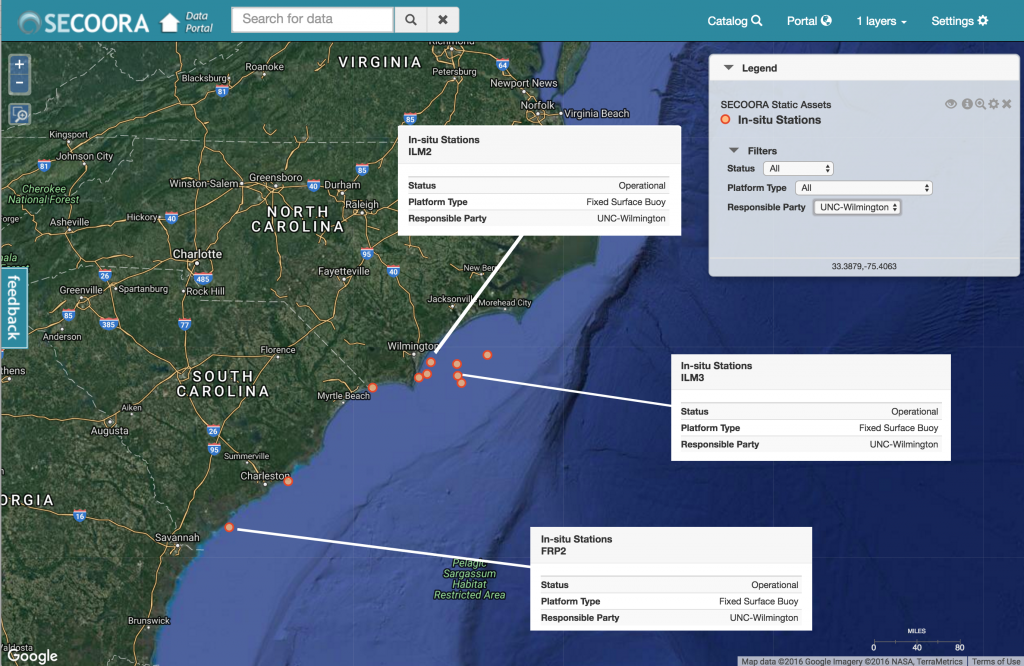
Figure 1. Pictured are the UNCW Coastal Ocean Research and Monitoring Program (CORMP) buoys on the SECOORA Data portal. Scheduled for deployment in the first week of the November, the updated buoys will replace the currently deployed FRP2, ILM2 and ILM3 stations (highlighted). FRP2 buoy stopped transmitting data on October 7 during Hurricane Matthew.
Over the past months the UNCW CORMP team restored old buoys, designed and tested the data collection, sensor and telemetry packages, and upgraded the solar power systems.
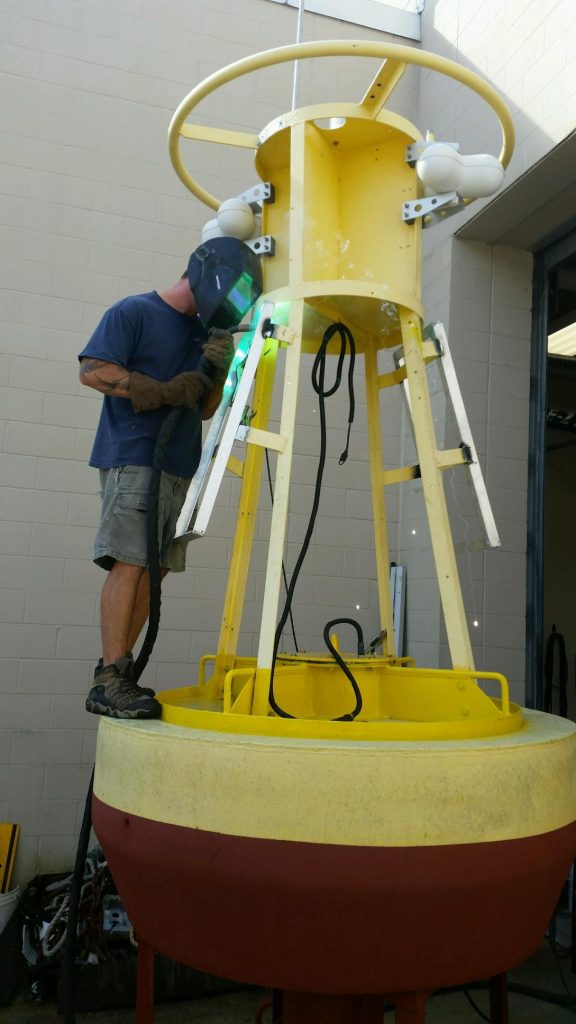
Figure 2. Chris LaClair of UNCW CORMP is welding on new solar panel frames. The buoys rely on photovoltaic panels to provide power for sensors, data loggers and communications. Image Credit: Brett Bolton, UNCW CORMP
The CORMP team replaces the buoys with new systems approximately every year. Due to last minute changes and failures at other stations, the current ILM2 buoy has been in the water since 2014. Upgrades to the systems being deployed include a more robust power system as well as secondary meteorological sensors. Increased power on the buoy will allow for more data transmission and having a secondary sensor onboard insures continuity in data collection.
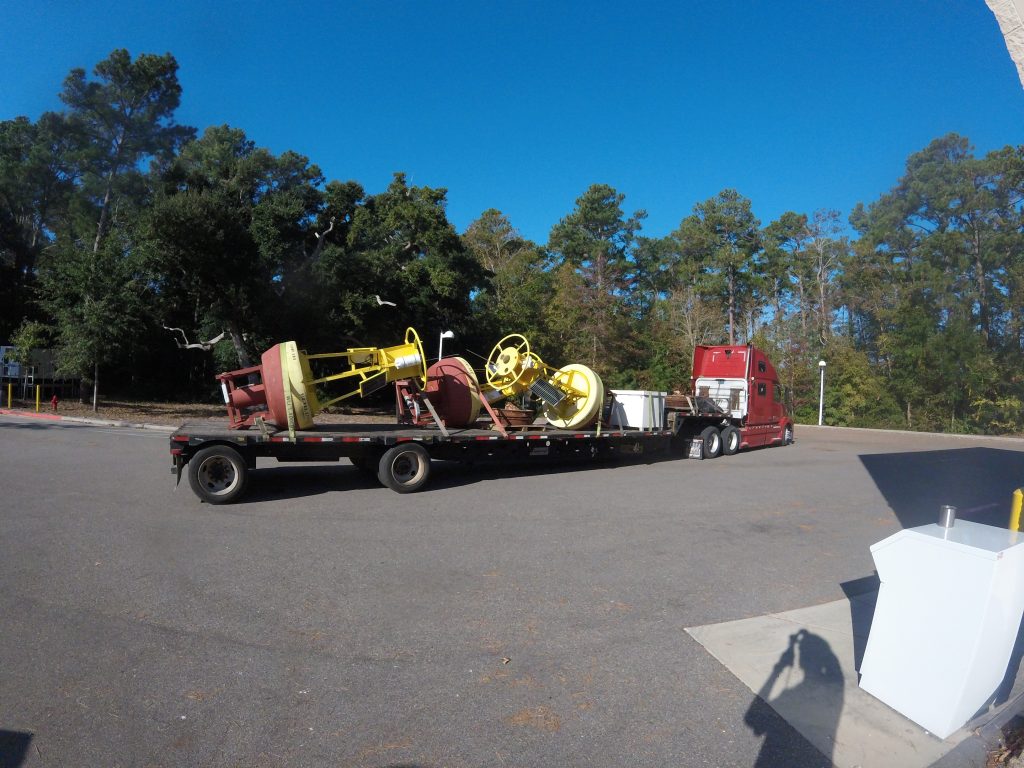
Figure 3. Buoys are on the truck ready to travel to the UGA’s Skidaway Institute of Oceanography where they will be loaded onto the Research Vessel Savannah. The research cruise will head out to sea in the first week of November. Image Credit: Brett Bolton, UNCW CORMP
The buoys are maintained by Coastal Ocean Research and Monitoring Program at the University of North Carolina Wilmington Center for Marine Science with funding from the NOAA led U.S. IOOS and SECOORA. Access UNCW CORMP buoy data here.
Related news

Now Hiring: Director of Communications and External Affairs
SECOORA is seeking to fill the full-time role of Director of Communications and External Affairs. This role will serve as the organization’s strategic lead for engagement, communication, and external relations.
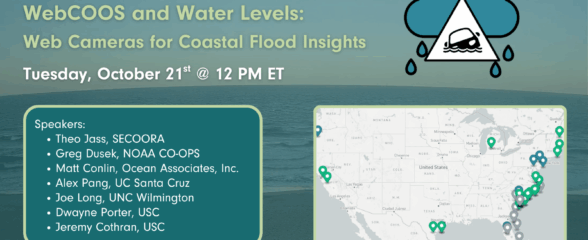
SECOORA Webinar | WebCOOS and Water Levels: Web Cameras for Coastal Flood Insights
On October 21st at 12 PM ET, SECOORA is hosting a webinar with investigators from the Webcam Coastal Observation System (WebCOOS) project team and the WebCOOS Project Manager. Web cameras are a low-cost technology that can be used to document flooding impacts to coastal communities. Register here.
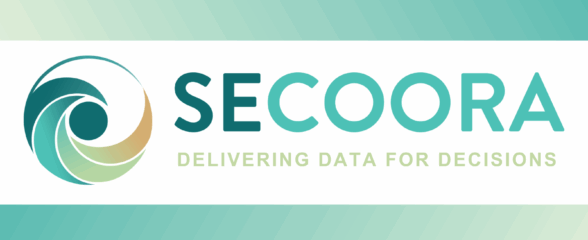
SECOORA Funding Opportunity Announcement: Letters of Intent Solicitation
SECOORA will submit a coordinated regional proposal in response to the anticipated FY 2026 Implementation of the U.S. Integrated Ocean Observing System (IOOS) funding opportunity. Letters of Intent to be considered for inclusion in SECOORA’s full proposal are due September 9, 2025.